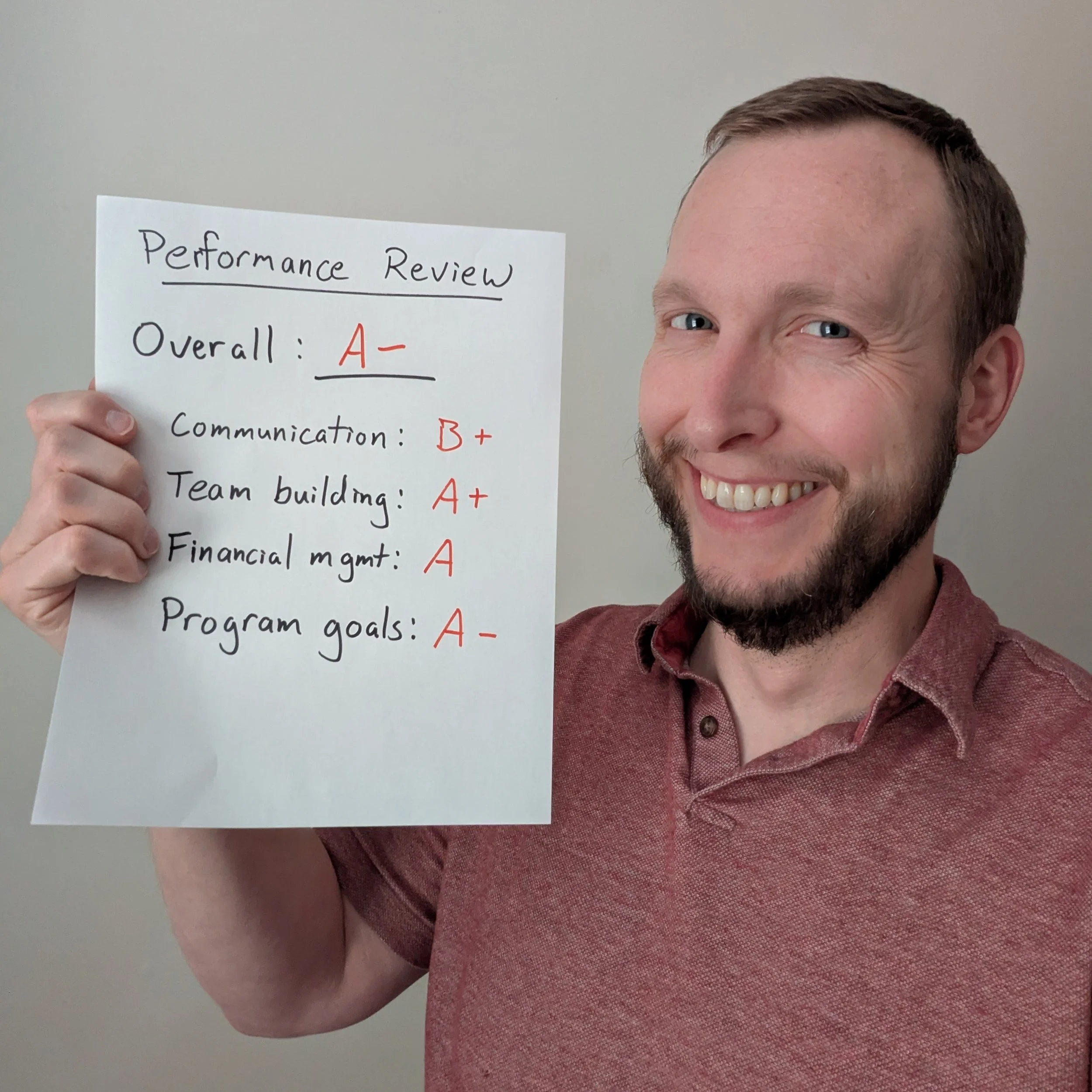You deserve a quality performance review. Here’s how to get one.
July 31, 2025 | By David M. Wagner
How are you doing?
Not emotionally – I mean, how are you doing at your job?
If you’re the leader of a small nonprofit or library, you might not really know. Board volunteers often have no experience evaluating executive performance – and may shy away from doing so.
The result is inconsistent, unhelpful feedback (“you’re doing great!”).
Ok…so maybe I was the weird kid who looked forward to getting his report card.
But if you’re not having productive performance conversations with your board, you’re missing out on opportunities to grow as a leader and help your organization thrive.
Want to change that?
Here are some suggestions from my clients and my own leadership experiences. I also found this article about the problem of board supervision (and some alternatives) and this annual evaluation assessment tool to be helpful.
Meaningful Performance Reviews
I’ve written before about the characteristics of successful performance reviews. Here are some practices, specific to executive reviews, to ask your board to adopt.
Leading boards will:
Provide near-real-time feedback for sensitive matters (within a day).
Create a two-way street for feedback (the board will ask for feedback, not just give it).
Create ongoing or periodic opportunities to share and receive feedback (not just once per year).
Offer suggestions for improvement (not just an assessment).
With the executive, co-create annual performance goals tied to the strategic plan.
Write a formal performance evaluation based on goals and expectations agreed to before the period under review.
Incorporate 360-degree feedback using a rubric tied to clear, specific expectations for the executive.
Ask the executive to complete a self-assessment to inform their evaluation.
How many of these are true for you?
Make Changes Thoughtfully
Like any change, improving the executive performance review process should be done with intent, including allowing time for adjustment.
Leading boards will:
Assign responsibility for the performance evaluation to an existing or new committee with appropriate expertise (including outside advisors, if appropriate).
Adopt a performance evaluation policy describing the procedures that will be followed to set expectations, collect and provide feedback, and conduct an annual performance assessment, as well as how the assessment will be used (e.g., how does it tie to your compensation?).
Hold the executive accountable for expectations (a) that have been clearly defined and agreed to by the board (or delegated committee) and executive and that (b) the executive has had an opportunity to meet. No retroactive application of expectations.
Consult professionals where they lack expertise or objectivity, such as to customize an evaluation policy or rubric, facilitate goal development, collect and share 360-degree feedback, or coach the executive on growth areas.
You are entitled to know how you’re doing at your job and how you can improve. If you could use better feedback, send this post to your chair and ask for a conversation. Or set a time with me if you (or they) need help putting a strong evaluation system into place.


